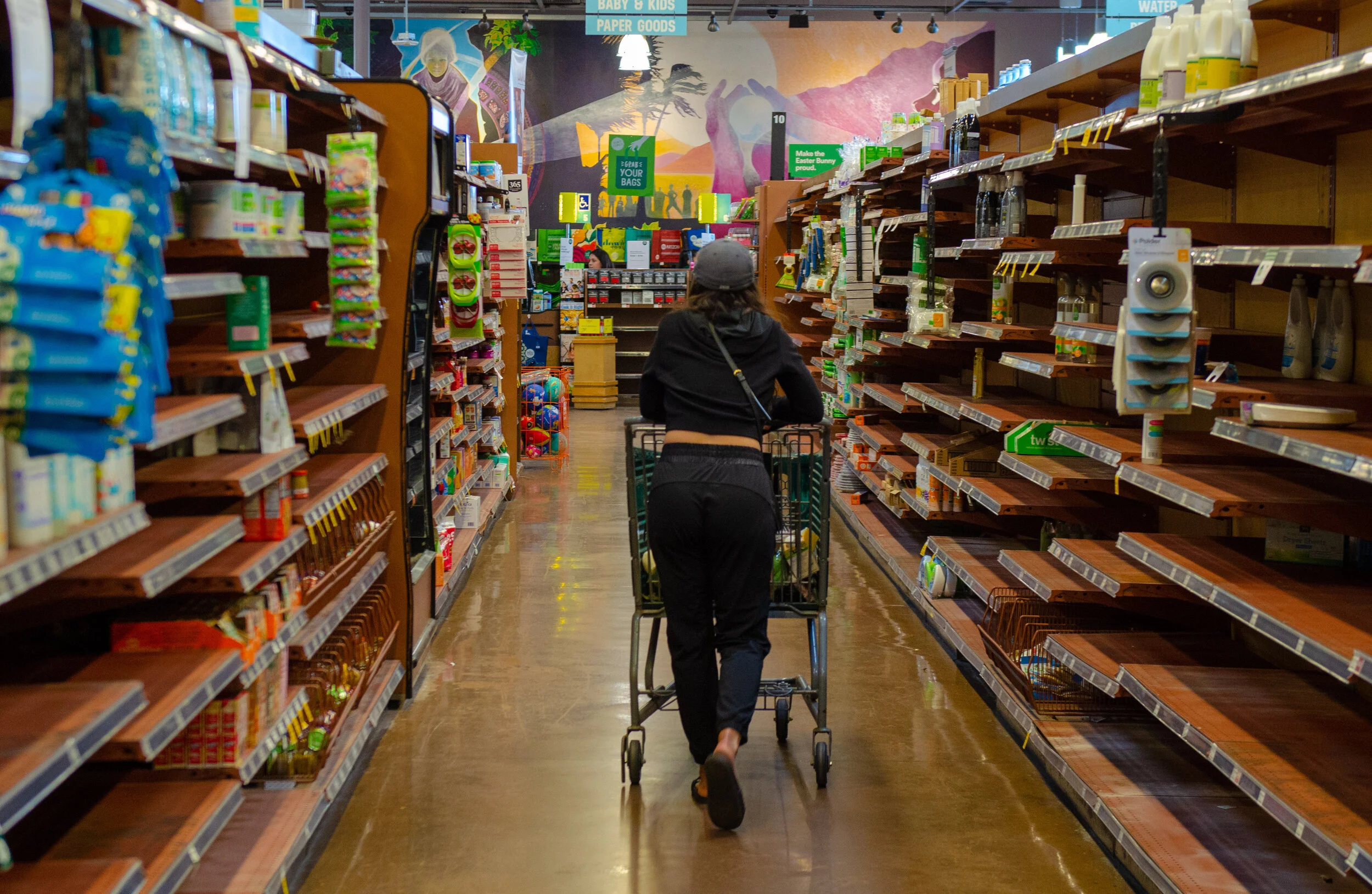Shelves Lay Bare as Fears Over COVID-19 Spread
A shopper browses empty shelves at a Whole Foods Market due to Coronavirus (Covid-19) in Venice, California, On Wednesday, March 18, 2020. (Kiran Baez/The Corsair)
Encouraged by orders to stay home, self-isolate, and maintain social distancing as much as possible, the sudden need of food, water, toilet paper, and other emergency essentials has risen sharply, with suppliers being unable to keep up with demand.
“We couldn’t order more of everything to try and prepare the next wave of buying,” said Lea Greenberg, an employee at Trader Joe's. “The warehouses where all the items come from told us that they couldn’t get enough goods to each location fast enough. They stopped sending us the right orders for food and instead began sending us whatever random things they could gather.”
Despite having a surplus of supplies, the biggest problem has been the inability to move items from warehouses in time to refresh properly.
“We try to restock every night. But at this point if we were to resupply fully, they [Whole Foods] would have to shut down for a week,” said Jose, a third-party supplier for Whole Foods, who did not wish to give his last name due to his employer’s media policy.
Though the public has been advised to stock up, some citizens have taken the recommendation as a doomsday queue. Despite protests from California Governor Gavin Newsom, Mayor of Los Angeles Eric Garcetti, and President Donald Trump against hoarding food, videos of fights over toilet paper have filled the internet, along with reports of shoppers buying hundreds of units of a single product at a time.
The situation has opened up the opportunity for price gouging of resold items bought in bulk. Notably, a man in Tennessee bought 17,700 bottles of hand sanitizer with the intention of reselling them for a higher price, and in San Diego, eight people were arrested for price gouging yesterday, March 19.
In response, supermarkets have instituted limits on essential items such as water, toilet paper, rice, and canned soups, which cashiers have been told to enforce.
The irrational response from some is not unexpected, however. “As fear mounts, there’s a focus on the here and now, and less confidence in the future,” said Dr. Keith Holyoak, professor of cognitive psychology and director of University of California, Los Angeles' (UCLA) Reasoning Lab. “If you’re caught up in it, we begin to talk about the psychology of crowds or mobs… People think less rationally when they’re in this immediate hyped up context. Of course, if everybody just took what they needed and no more we’d be okay. But what is lacking is a voice of authority,”
Dr. Holyoak doesn’t believe that there has been a lack of trying on the part of the authorities, but rather that the American psyche is hardwired to mistrust authority. “The problem is that we’re now in a situation where so many people have so little faith in what they’re being told, that people are not responding in the way people normally would to a central signal.”
Ultimately, as the public begins to adjust to the shock and new lifestyle, most people will begin to notice that the shelves continue to restock, and calm accordingly, according to Dr. Holyoak. “The hope is that this would be alleviated rather than just continuing. It was the first shock of this happening that prompted a lot of people to go over the edge."

